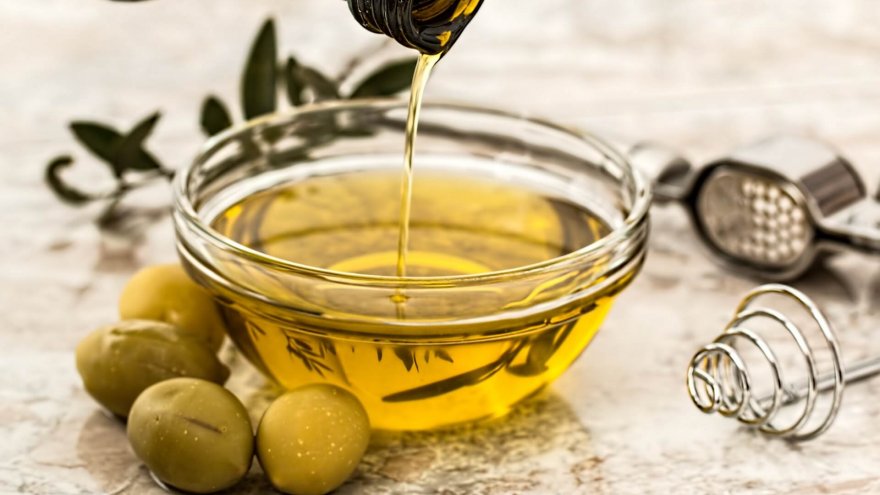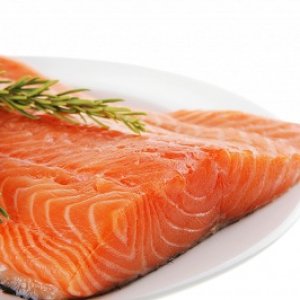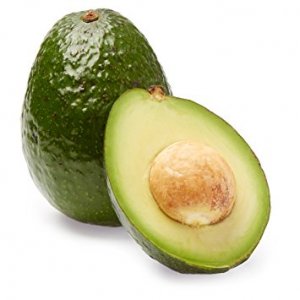Females, Fats Are Your Friend!

The 1990’s were an extremely memorable decade. Fashion was ‘grungy chic,’ which made it super easy for us runners to go from our afternoon workout to happy hour with friends, mainstream musicians were creating some of the best pop and indie rock classics for your favorite running CD (played on your Walkman, of course), and the fat-free diet craze was taking mass media by storm. While we can still look back on the fashion and music with love and fond memories, the dieting industry’s push to take the fats out of everything from dairy products to frozen meal entrees left a lot of us with misconstrued ideas about health, wellness, and nutrition. And if you are a female (and especially if you are a female runner), going on a low fat or fat free diet can really wreak havoc on your personal health and fitness goals.

Fat Helps Equal Full
One thing you might not expect a dietitian or nutritionist and especially your doctor to tell you if you are trying to lose weight or get to a healthier weight is to eat MORE fat. But it is true. A lot of people who struggle to maintain a healthy weight, BMI, or can’t get away from yo-yo dieting are not eating balanced amounts of macronutrients. Fats, proteins, and carbohydrates are the three macronutrients your body needs to function. The key word in that sentence is NEED. Each one plays a vital role in helping your body work properly and perform both basic and innate functions like breathing and hair growth, as well as more complex functions like higher level thinking and competing in endurance sports. Your body needs carbs for energy, protein for muscle growth and strength, and FATS to regulate hormones, protect your organs,supply your body with adequate vitamins and minerals, and keep you full. If you are cutting out one specific macronutrient, then your body starts to suffer from imbalance. Not mention, you will NEVER feel satisfied. Eating more fat in your diet could actually help you consume less overall, because you will feel fuller and won’t feel compelled to continue snacking on foods that are not as filling. Plus, fatty foods are typically very rich and tasty. And while dieters have been (falsely) convinced to stay as far away from ‘rich’ and ‘tasty’ as possible, it is these characteristics of fat that help your body want and need less food in the long run.

You Need Fat. Period.
A lot of female runners suffer from amenorrhea, a condition in which the woman loses her period due to high levels of exercise (especially cardiovascular exercise, like running) and low amounts of body fat. Many doctors, along with decreased exercise, will prescribe a high-fat diet for women working to heal their amenorrhea and get their periods back. This is first because fatty foods are nutrient dense. Carbohydrates and protein have 4 calories for every gram of carb and protein, while fat has 9 calories for every gram. This means that, by and large, foods high in fats will be more calorie dense (which is also why you need less of them to feel fuller!). Increasing your calories can play a big role in repairing your body and getting your period back. And while it might be difficult to understand and believe, just because you increase your calories through higher fat content does NOT necessarily mean you will gain a bunch of weight – though your body might need to gain extra weight in order to get its period back. But calories aside, fat also plays a key role in regulating the thyroid, which is the organ responsible for managing your hormones – including your reproductive hormones that govern the female menstrual cycle. Giving your body adequate amounts of fat through a balanced diet will help it to release hormones and regulate your period in a cyclical, balanced way so that everything stays functioning happily and healthily just as it is supposed to!

Good Sources of Healthy Fats
When referring to fats and fat consumption, most dietitians are promoting ‘healthy’ fats. It is important to understand exactly what that means before making any significant changes to your diet and intake. “Healthy fats” are polyunsaturated and monounsaturated fats which have a specific chemical composition that helps reduce bad cholesterol and promote heart health. So how can you distinguish between ‘good’ fats and ‘bad fats.’ For the most part, fats that are liquid or “soft” at room temperature are “good” fats. This is why the Mediterranean Diet is touted as one of the best and healthiest diet options out there. Mediterranean cuisine uses a lot of oils (olive oil, sunflower oil, grapeseed oil, etc) to cook with, as well as oily fish like salmon and tuna which are rich in omega-3s. Some other great sources of healthy fats are nuts like walnuts, almonds, and pistachios, and everybody’s tropical favorite, the delicious avocado! “Bad” fats work opposite of good fats, in that they often raise bad cholesterol which can increase the risk of heart disease and diabetes. Be sure to check your food labels to know what you are consuming!
Sources
- , Why Women Need Fat, Chicago Tribune Article
- , Healthy Fats and Yor Period, Runner's World Article
- , 19 Healthy Fats and High-Fat Foods You Should Be Eating, Self Magazine online article
Latest Articles
 Is Running on a Treadmill Easier Than Running Outside?Runners have their own preferences, whether it is treadmill running, running outside on the road, or exploring trails. So...
Is Running on a Treadmill Easier Than Running Outside?Runners have their own preferences, whether it is treadmill running, running outside on the road, or exploring trails. So... Is It OK to Use Trail Running Shoes on the Road?While trail running shoes can be used on roads, especially in situations where a runner encounters mixed terrains or pref...
Is It OK to Use Trail Running Shoes on the Road?While trail running shoes can be used on roads, especially in situations where a runner encounters mixed terrains or pref... How to Fix Sore Quads After Running?Rest, ice, gentle stretching, and over-the-counter pain relievers can help soothe sore quads after running. Also, ensure ...
How to Fix Sore Quads After Running?Rest, ice, gentle stretching, and over-the-counter pain relievers can help soothe sore quads after running. Also, ensure ... 10 Fruits With The Most Electrolytes to Replace Sports DrinksThese fruits are high in electrolytes such as potassium, magnesium, and calcium, essential for hydration, muscle function...
10 Fruits With The Most Electrolytes to Replace Sports DrinksThese fruits are high in electrolytes such as potassium, magnesium, and calcium, essential for hydration, muscle function...

